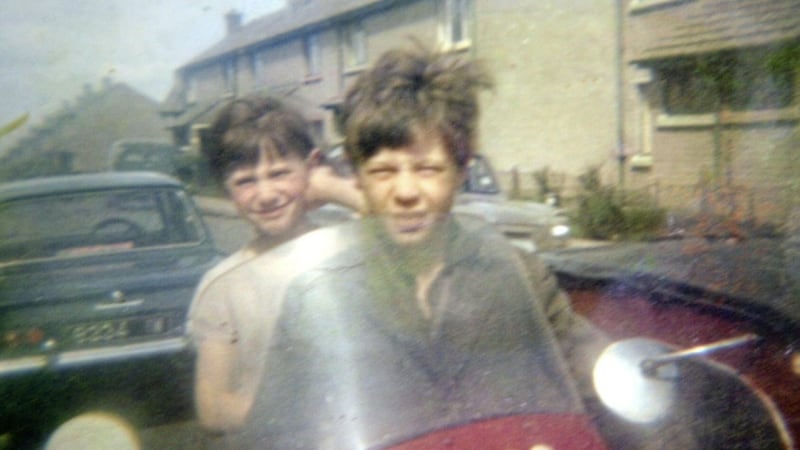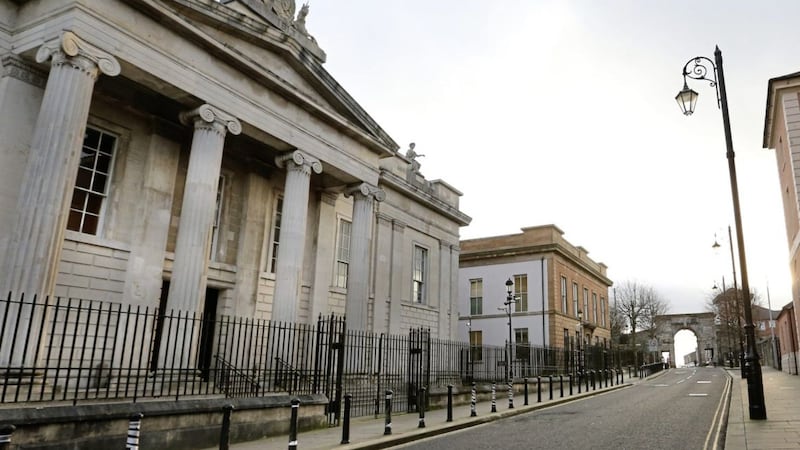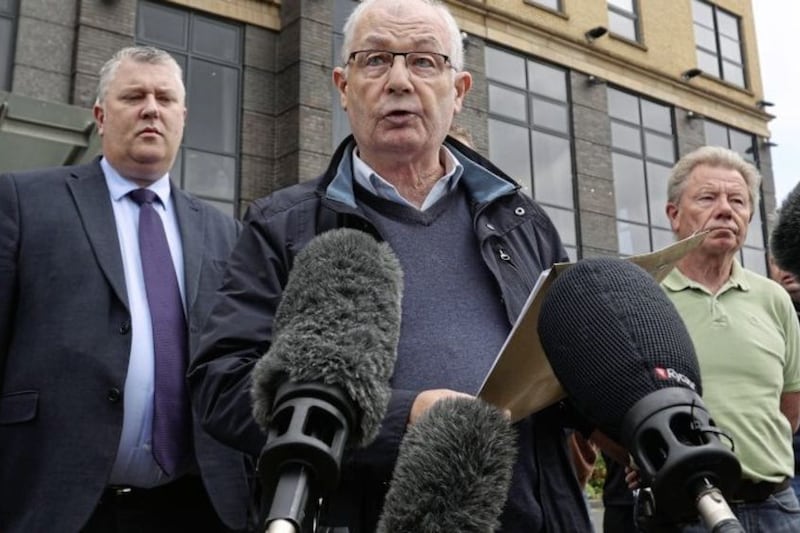Self-defence claims raised by a soldier who shot an innocent teenager at point-blank range in Derry 45 years ago have been stripped of all credibility, the High Court heard today.
Judges were told Daniel Hegarty was a member of a prayer group who posed no threat and would have stopped in his tracks.
Relatives of the schoolboy are challenging a decision not to prosecute the member of the army unit who fired the fatal shots.
Their lawyers claimed the conclusion reached was perverse and irrational.
Reserving judgment in the case, Mr Justice Treacy pledged to give a decision as soon as possible.
Fifteen-year-old Daniel was unarmed when he was shot twice in the head during an army operation in the Creggan area of the city in July 1972.
His cousin Christopher, 16, also sustained a bullet wound to the head but survived.
The shootings occurred at the height of the Troubles as British troops were deployed in Derry in an attempt to clear so-called no-go areas.
In 2011 an inquest jury unanimously found Daniel posed no risk and had been shot without warning, prompting the coroner to refer the case back to the Public Prosecution Service.
But in March last year it was decided not to pursue charges against Soldier B, who fired the fatal rounds, on the basis of no reasonable prospect of a conviction.
According to the PPS forensic experts were unable to state that ballistics evidence is inconsistent with Soldier B's account of the circumstances in which he fired.
Daniel's sister, Margaret Brady, is now seeking to judicially review the Director of Public Prosecutions over that decision.
Her senior counsel, Michael Mansfield QC, argued that expert evidence completely refutes assertions that the bullets were fired in self-defence.
Instead, he contended, the scientific opinion backed the family's belief that it was an unlawful killing carried out at a range of less than 10 feet.
In a statement he claimed to have pulled the trigger on the machine gun while it was on the ground - an account Daniel's family allege was contrived to suggest fear of a non-existent threat.
Referring to expert evidence, Mr Mansfield submitted: "The pretence of self-defence basically falls away altogether... there's no credibility left."
Although he accepted a conviction could not be guaranteed, the barrister nevertheless claimed a jury may establish proof beyond reasonable doubt.
"There's credible evidence from the cousin, from the man in the house next door and from the ballistics," he told the court.
"There's no support for B's account coming from the rest of his platoon."
Despite recognising the tensions facing soldiers trying to perform a policing operation at the time, Mr Mansfield was withering in his assessment of Soldier B's actions.
"He saw young men at a time of night when he thought they shouldn't have been out and he shot them," the barrister said.
"He plainly has shot at people who would have stopped absolutely in their tracks if they had been warned.
"Two of them were members of the Rosary Crusaders - a prayer group.
"These were not remotely terrorists of any kind, they wouldn't have posed a threat and that's what makes the decision even more unacceptable and perverse."
Counsel for the Director argued that the case was subjected to close forensic analysis, with two expert reports and advice from senior counsel.
Tony McGleenan QC also stressed the high threshold required to rebut the soldier's claims, and to establish perversity in the decision-making process.
"Given self-defence is in play the question we are asking is whether or not the prosecution can prove beyond reasonable doubt that the actions of Soldier B were not taken in self-defence," he said.
"Thar's the issue the Director was grappling with he was properly directing his mind to the key issue in the case.
"There's no sense that he has missed the point and was looking at the wrong issue."








